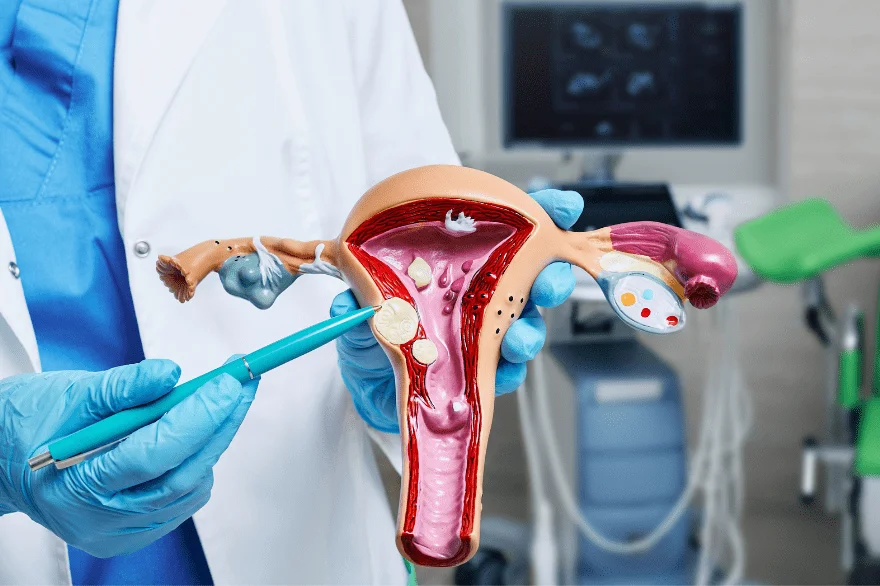Obstetrics and Gynaecology

Importance of Prenatal care
- Early detection and management of complications.
- Promotes healthy pregnancy.
- Fetal development monitoring.
- Education and support.
- Reduces risks of preterm birth and kow weight birth.
- Mental health suppport.
Importance of Prenatal Care
- Early detection and management of complications.
- Promotes healthy pregnancy.
- Fetal development monitoring.
- Education and support.
- Reduces risks of preterm birth and Low weight birth.
- Mental health support.
Hypertension in pregnancy
Hypertension in pregnancy refers to high blood pressure that develops during pregnancy. It’s a common condition and can pose risks to both mother and the baby if not properly managed. There are several types of hypertension that can occur during pregnancy:
- Chronic hypertension: High blood pressure that was present before pregnancy before 20 weeks of pregnancy.
- Gestational hypertension: High blood pressure that develops after 20 weeks of pregancy, it usually resolves after delivery.
- Preeclampsia: A serious condition characterized by high blood pressure and signs of damage to other organ systems such as the kidneys or liver.
- Eclampsia: A sever form of preeclampisa characterized by seizures.
Ovarian Cysts
Ovarian cysts are fluid sacs that form on or inside the ovaries. They are common especially during a woman’s childbearing years and can vary size and type. While many ovarian cysts are harmless and resolve on their own, some may cause symptoms or complications that require medical attention.
Types of Ovarian Cysts.
Follicular cysts: They develop when the follicle doesn’t rupture or release its eggs but continues to grow.
Corpus Luteum cysts: Form when the empty follicle sac doesn’t shrink after releasing the egg and instead reseals with fluid.
Pathological cysts: There are various forms of pathological cysts such as dermoid, cystadenomas, endometriomas.
Polycystic Ovary Syndrome(PCOS): Characterized by multiple small cysts on the ovaries, hormonal imbalance and irregular menstrual cycles.
Symptoms
- Pelvic pain(dull or sharp)
- Bloating or abdominal swelling
- Pain during intercourse
- Painful periods
- Frequent urination if the cyst is pressing the bladder.
- Hormonal disturbances
Complications & Health risk
- Ruptures Cyst: Can cause severe pain and internal bleeding, requires immedicate medical attention.
- Ovarian torsion: Twisting of the ovary that can cut off blood supply, causing sudden severe pain and requiring emergency surgery.
- Infection: Although rare, an infected cyst can cause pelvic inflammatory disease.
Obstetrics and Gynaecology
Obstetrics and gynecology (OB-GYN) is a medical specialty focused on the care of women during pregnancy, childbirth, and the postpartum period, as well as the diagnosis and treatment of disorders of the female reproductive system. This field encompasses a wide range of services, from routine preventive care to advanced surgical procedures.
Obstetrics
Obstetrics deals with the care of pregnant women, the unborn baby, labor and delivery, and the immediate period following childbirth. Key areas include:
- Prenatal Care: Monitoring the health of both mother and baby through regular check-ups, ultrasounds, and tests to ensure a healthy pregnancy.
- High-Risk Pregnancy Management: Special care for pregnancies with increased risks due to factors like maternal age, chronic illnesses, or complications in previous pregnancies.
- Labor and Delivery: Assistance during childbirth, including natural births, use of pain relief methods, and performing cesarean sections when necessary.
- Postpartum Care: Support and care for the mother after delivery, including recovery from childbirth, lactation support, and addressing postpartum depression.
Key Components of Prenatal Care
1 Initial Visit: During initial visits to the facility these are some of the services we offered: Physical examination, laboratory tests.
2. Nutritional and Lifestyle Guidance: Dietary advice, exercise, avoidance of harmful substances like alcohol, smoking and certain medications.
3. Labour and Delivery Preparation: Birth plan, childbirth education, hospital tour.
4.Screening and Tests: Under screening and tests we offer services such as:
Ultra-sounds: Usually performed at 8-14 weeks and 18-22 weeks to monitor fetal development check for congenital anomalies and determine the baby’s sex.
Genetic screening: Tests such as nuchal, transluency screening, cell-free DNA testing and amniocentesis to identify genetic disorders.
In conclusion, Prenatal care is a vital aspect of ensuring a healthy pregnancy and positive birth outcomes. Regular medical visits, screenings, nutritional advice, and education provided during prenatal care contribute significantly to the health and well-being of both the mother and the baby.
Heavy Menstrual Bleeding
Heavy menstrual bleeding, also known as menorrhagia, is a common condition characterized by excessive or prolonged menstrual bleeding. It can interfere with a person’s quality of life and may indicate an underlying health issue and that’s why we at Hello Daktari chose to offer this service and we help you manage this condition. Some common causes of heavy menstual bleeding include:
Hormonal imbalances: Fluctuations in estrogen and progesterone levels can affect the thickness of the uterine lining leading to heavy periods.
Uterine fibroids: These non-cancerous growths in the uterus can cause heavy or prolonged menstrual bleeding.
Adenomyosis: This condition occurs when the tissue that lines the uterus grows into the muscular wall of the uterus causing heavy periods and pelvic pain.
Intrauterine devices(IUDs): Some types of IUDs, particularly copper IUDs can lead to heavier periods as a side effect.
Certain medications: Blood thinners and hormonal medications can sometimes cause heavy menstrual bleeding as a side effect.
In conclusion treatment for heavy menstrual bleeding dependa on the underlying cause and may include: medication, hormanal therapies, minimal invasive procedures or surgery.
Fibroids
Uterine fibroids are noncancerous growths that develop in or on the uterus. They are common in women of reproductive age. Fibroids can vary in size, number and location leading to a wide range of symptoms and treatment options.
Types of Fibroids
- Intramural Fibroids: Grow within the muscular wall of the uterus.
- Submucosal fibroids: Develop just under the lining of the uterine cavity, potentially protruding into the uterine cavity.
- Subserosal fibroids: Form on the outer wall of the uterus and can extend into the pelvic cavity.
- Pedunculated fibroids: Attach to the uterus by a thin stalk and can be either submucosal or subserosal.
Symptoms
- Heavy menstrual bleeding
- Prolonged menstrual periods
- Pelvic pain/pressure
- Frequent urination
- Difficulty emptying the bladder
- Constipation
- Pain during intercourse
Causes and Risk factors
- Hormonal factors: Estrogen and progesterone hormones taht stimulate development of the uterine lining appear to promote the growth of fibroids.
- Genetic factors: A family history of fibroids can increase the risk.
- Other factors: Obesity, high blood pressure and a diet high in red meat and low in green vegetables, fruit and dairy.
Treatment Options
- Medications
- Minimally Invasive Procedures
- Surgical procedures.

Subspecialities in OB-GYN
OB-GYN includes several subspecialties that allow for more focused expertise:
- Maternal-Fetal Medicine: Focuses on high-risk pregnancies and fetal health.
- Gynecologic Oncology: Concentrates on cancers of the female reproductive system.
- Reproductive Endocrinology and Infertility: Deals with hormonal functioning as it pertains to reproduction and infertility treatments.
- Urogynecology: Addresses pelvic floor disorders, including urinary incontinence and pelvic organ prolapse.
Gynaecology
Gynecology focuses on the health of the female reproductive system outside of pregnancy. It includes:
- Preventive Care: Regular screenings such as Pap smears, pelvic exams, and HPV vaccinations to prevent and detect early signs of gynecologic cancers and other conditions.
- Reproductive Health: Addressing issues related to menstruation, contraception, fertility, and menopause.
- Diagnosis and Treatment of Conditions: Managing disorders such as endometriosis, polycystic ovary syndrome (PCOS), uterine fibroids, and sexually transmitted infections (STIs).
- Surgical Procedures: Performing surgeries like hysterectomies, removal of ovarian cysts, and minimally invasive laparoscopic surgeries.
Common Procedures in Obstretics and Gynaecology
- Ultrasound: Used for monitoring pregnancy and diagnosing gynecologic conditions.
- Amniocentesis: A prenatal test to diagnose genetic disorders.
- Colposcopy: Examination of the cervix for abnormalities detected during a Pap smear.
- Hysteroscopy: Inspection of the uterine cavity for diagnostic and treatment purposes.
- Laparoscopy: A minimally invasive surgery for diagnosing and treating gynecologic conditions
Importance of OB-GYN Care
Regular OB-GYN care is crucial for maintaining reproductive and overall health. Preventive visits help in early detection and management of potential health issues, while specialized care ensures that complex conditions are treated effectively.
Obstetrics and gynecology is a dynamic and essential field of medicine dedicated to the comprehensive care of women. Whether through routine check-ups, managing pregnancy, or addressing complex gynecologic conditions, OB-GYN professionals play a vital role in promoting women’s health and well-being throughout their lives.
